#T.s.eliot
Explore tagged Tumblr posts
Text

— TS Eliot, Ash-Wednesday
23 notes
·
View notes
Video
youtube
On 'The Waste Land': Mark Ford and Seamus Perry
A great discussion on one of the great modern poems.
6 notes
·
View notes
Text
"The experience of a poem is the experience both of a moment and of a lifetime". T.S.Eliot: a fragment from "Dante". https://tseliot.com/prose/dante
21 notes
·
View notes
Text
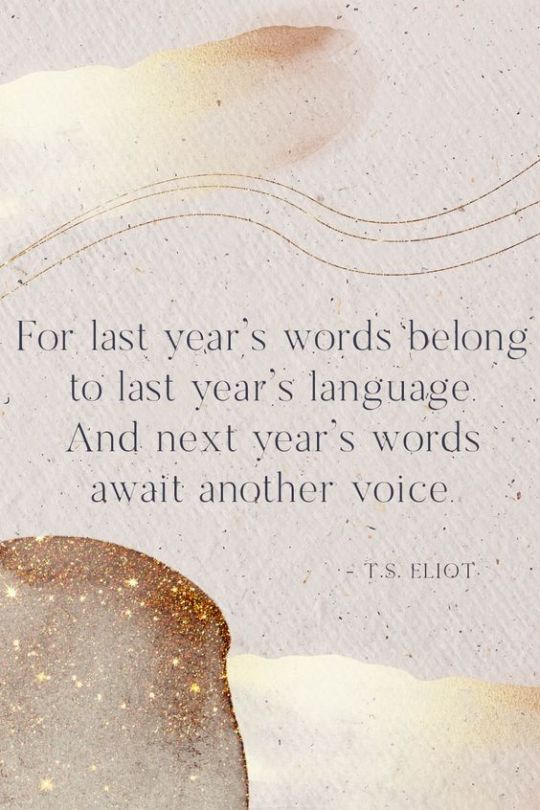
13 notes
·
View notes
Text
Sizdeki üç şeyi görebilen insanlara güvenin :
Gülüşünüzün ardındaki kederi,
Öfkenizin ardındaki sevgiyi,
Sessizliğin ardındaki nedeni.
2 notes
·
View notes
Text
Ezra Pound the best craftsman


Ezra Pound the best craftsman Ezra Pound the best craftsman as Eliot called him, an article that synthetically explains the linguistic art and poetics of this great poet, with some examples of his writing style and deep literary meaning. I have never known anyone worth a damn who wasn't irascible. Ezra Pound I guess the definition of a lunatic is a man surrounded by them. Ezra Pound A slave is one who waits for someone to come and free him. Ezra Pound The real trouble with war (modern war) is that it gives no one a chance to kill the right people. Ezra Pound I could I trust starve like a gentleman. It's listed as part of the poetic training, you know. Ezra Pound No man understands a deep book until he has seen and lived at least part of its contents. Ezra Pound For Ezra Pound il miglior fabbro. The dedication is drawn from The Divine Comedy, the 14th century epic poem by Dante. The Divine Comedy is divided into three parts - Inferno, Purgatorio, and Paradiso - describing Dante's journey through Hell, Purgatory, and finally Paradise. Eliot returns to this poem throughout The Waste Land. Here, the dedication translates as “the better craftsman,” a reference to Canto 26 of the Purgatorio. Dante refers to the poet Arnault Daniel, but Eliot passes the compliment on to Pound, who helped edit The Waste Land. Eliot returns to the same canto in line 428. More context, from the Cotter translation of the Purgatorio: “O brother, the one I point to with my finger,” He spoke, and pointed to a soul in front, “Was a better craftsman of the mother tongue.” This information is based on a footnote from North (2001). For more on Pound's contributions, see the annotated manuscript of The Waste Land in Eliot (1971). Ezra Weston Loomis Pound was an American expatriate poet, critic and intellectual who was a major figure of the Modernist movement in early-to-mid 20th century poetry. Born in Halley, Idaho, (1885-1972) Pound spent most of his life in Europe. In 1908, in his mid-twenties, he went to London because he wanted to meet the greatest living poet, W.B. Yeats, settled there and became a central figure in the literary and artistic world. He founded and led a poetic movement called "Imagism", which reacted against 'Romanticism' and contributed greatly to the development of "Modernism". For some time he was also involved in "Vorticism", an art movement initiated in 1913 by Wyndham Lewis, which combined cubism and the celebration of the energy and speed of the machine age, very much like Futurism in Italy. In 1909 he published Personae, a collection of poems after the manner of the Victorian poet Robert Browning, whose dramatic monologue technique he employed to speak through the voice of others. A "persona" was the mask worn by Roman actors, and Pound used the mask to avoid subjectivity, which the imagists objected to in Romantic poetry. Gradually, Pound started moving away from the constraints of Imagism, and translated from Anglo Saxon and Chinese verse to explore different forms. In 1917 he also started writing the Cantos, a series of poems inspired by Dante's Divine Comedy and Homer's Odyssey, which he would work on for the rest of his life, while Hugh Selwyn Mauberley (1920) perhaps the first great modernist poem, attacks the destruction of the First World War and initiates one of Pound's main themes: the relationship between civilization and its economic and social basis. From 1920 he lived in Paris with his wife and became part of the new literary scene with expatriate Americans like Gertrude Stein and Ernest Hemingway. In Paris he also met James Joyce, then an obscure writer, and helped him publish Ulysses, which had censorship problems in England.
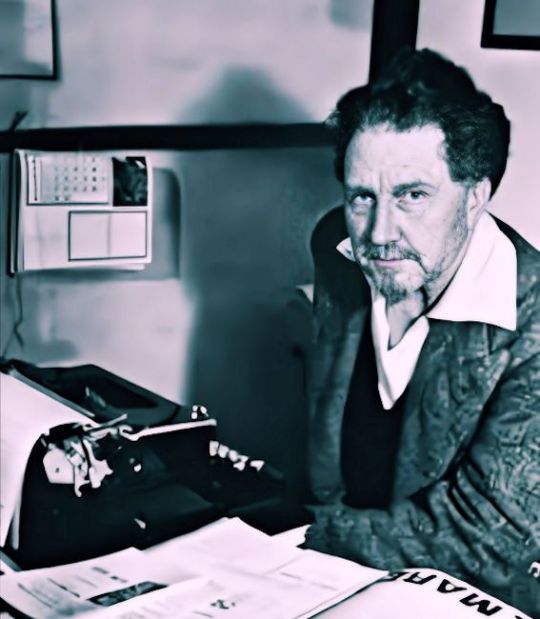
The art of Ezra Pound In 1929 Pound settled in Rapallo, Italy. He became increasingly concerned with the decline of Western civilization and with the social basis of art in what he believed to be a degenerate economic system. He studied the history of Italian Medieval and Renaissance states and found that Italy had in the past created the ideal conditions for the flowering of great art, while he associated modern credit capitalism with the social and spiritual decline of the present. Unfortunately, Pound's dislike of capitalism led him to Fascism and to Mussolini, who was himself anti-capitalist and who persecuted the Jews, associated with money-lending since the Middle Ages. During the Second World War he made a series of propagandist broadcasts over Radio Rome for which he was later tried in the United States, and confined for 12 years in a hospital for the insane. When he was released, he returned to Italy and died in Venice in 1972. With the Imagist movement, Americans poetry became international, and its leaders, the American Ezra Pound and T.S. Eliot, also became the leaders of European poetry. Imagism as such had a short life-span. But it was to become the most influential poetic movement of the century, just as Pound is now considered one of the most influential Modernist poets. Pound was also a generous encourager of other poets and writers; he edited The Waste Land and published Joyce's Ulysses. Through his translations and essays he made known to English-speaking readers Provencal poetry, the Italian poets of the Stil novo, Japanese dramatic literature and Chinese classical poetry. Finally, his critical essays con-tributed to the definition of 'Modernism' as a movement and introduced new standards of objectivity in the evaluation of literature. The Modern Age Cantos Imagism When Pound went to London he made common cause with a small group led by the philosopher T.H. Hume. They called themselves imagists and announced a new kind of poetry, which Pound summarized in a Manifesto: 1) To use the language of common speech, but to em-ploy also the exact word, not the merely decorative word. 2) To create new rhythms - as the expression of new moods. We do not insist on 'free verse' as the only method of writing poetry... We do believe that the in-dividuality of a poem may often be better expressed in free verse than in conventional forms. 3) To allow absolute freedom in the choice of subject. 4) To present an image (hence the name 'Imagist'). We are not a school of painters, but we believe that poetry should render particulars exactly and not deal in vague generalities, however magnificent and sonorous. 5) To produce poetry that is hard and clear, never blurred or indefinite. 6. Finally, most of us believe that concentration is the very essence of poetry. A multicultural collection of poems The following poem by Pound has become famous as an example of the principles declared in the Manifesto. The poem describes a moment of intense emotion at seeing beautiful faces in a station of the Paris underground. The images condense the emotion in two parallel pictures with great economy of words, and using the language of common speech: In a Station of the Metro The apparition of these faces in the crowd; Petals on a wet, black bough. From "Poems of Lustra", 1913 In 1914 Pound abandoned the movement. Imagism was only a step on the way to Modernism, because images alone offered too limited possibilities for poetry. But its insistence on economy and free-verse continued to be valuable. Starting in 1917, Pound worked on the Cantos for the rest of his life. The Cantos, 140 loosely connected poems, have their source in Dante's Divine Comedy, as their name declares, and on the Odyssey, a model for Pound's exploration of contemporary civilization. Some of Dante's persons, like Brunetto Latini, figure in them, while many episodes have the Odyssey as a starting point. Pound shows a vivid awareness of the past. Like most great modernists (Yeats and Eliot), he looked into the past for useful literary material, for principles of conduct and for comparison with the present. As a result the Cantos are a multi-cultural work: besides the references to Dante and the Odyssey, there are also references to the Old Testament, Rimini in the 15th century under Sigismondo Malatesta, whom he considered the ideal, benevolent despot, Confucius, the United States at the time of Jefferson, Medieval England and Provence, to mention but a few. One of the main preoccupations expressed in the Cantos is economic. Pound believed that usury was at the basis of contemporary credit capitalism, which he considered the source of cultural and social disintegration. The usurer, be it an individual money-lender or a bank, charges interest, and interest, which is not worked for, creates false values, not just in economics, but also in life and art. The groups of cantos concerned with usury were written in the 1930s, when Pound was in Rapallo. In Canto XI of the Inferno, Dante asks Virgilio why usury is considered one of the most serious crimes against nature. Virgilio answers that nature takes its origin directly from God's mind and art (doings). Humanity imitates nature and art (work), like a schoolboy imitating his master. But usurers despise nature and art and refuse to live by the fruits of nature and of work. They live by the rates of interest that come from money-lending: "Filosofia, mi disse, a chi la' ntende nota, non pure in una sola parte, come natura to suo corso prende dal divino intelletto e da sua arte; e se tu ben la tua Fisica note, tu troverai, non dopo molte carte, che l'arte vostra quella, quanto pote, segue, come'l maestro fa'l discente; si che vostr'arte a Dio quasi e nipote. Da queste due se tu ti rechi a mente to Genesi dal principio, convene prender sua vita e avanzar la gente; e perche l'usuriere altra via tene, per se natura e per la sua seguace, dispregia, poi ch'in altro pon la speme." Philosophy, he (Virgil) told me, for those who understand it, explains in more than one place, that Nature takes its origin directly from God's Mind and from his Art (doings); and if you read Aristotles's Physics, you'll soon discover that your (human) art imitates Nature as it can, like a schoolboy his master. So that your art can be called God's grandchild. From these two (Art and Nature) if you remember the beginning of Genesis, man should get his bread and promote prosperity to all. But the usurer chooses another way; he despises Nature and Art because he places his hopes elsewhere. With usura Canto XLV With usura hath no man a house of good stone each block cut smooth and well fitting that design might cover their face, with usura hath no man a painted paradise on his church wall harpes et luz or where virgin receiveth message and halo projects from incision, with usura seeth no man Gonzaga his heirs and his concubines no picture is made to endure nor to live with but it is made to sell and sell quickly with usura, sin against nature, is thy bread ever more of stale rags is thy bread dry as paper, with no mountain wheat, no strong flour with usura the line grows thick with usura is no clear demarcation and no man can find site for his dwelling. Stonecutter is kept from his stone weaver is kept from his loom WITH USURA wool comes not to market sheep bringeth no gain with usura Usura is a murrain, usura blunteth the needle in the maid’s hand and stoppeth the spinner’s cunning. Pietro Lombardo came not by usura Duccio came not by usura nor Pier della Francesca; Zuan Bellin’ not by usura nor was ‘La Calunnia’ painted. Came not by usura Angelico; came not Ambrogio Praedis, Came no church of cut stone signed: Adamo me fecit. Not by usura St. Trophime Not by usura Saint Hilaire, Usura rusteth the chisel It rusteth the craft and the craftsman It gnaweth the thread in the loom None learneth to weave gold in her pattern; Azure hath a canker by usura; cramoisi is unbroidered Emerald findeth no Memling Usura slayeth the child in the womb It stayeth the young man’s courting It hath brought palsey to bed, lyeth between the young bride and her bridegroom CONTRA NATURAM They have brought whores for Eleusis Corpses are set to banquet at behest of usura. N.B. Usury: A charge for the use of purchasing power, levied without regard to production; often without regard to the possibilities of production. (Hence the failure of the Medici bank.) Pound's The Cantos contains music and bears a title that could be translated as The Songs - although it never is. Pound's ear was tuned to the motz et sons of troubadour poetry where, as musicologist John Stevens has noted, "melody and poem existed in a state of the closest symbiosis, obeying the same laws and striving in their different media for the same sound-ideal - armonia." In his essays, Pound wrote of rhythm as "the hardest quality of a man's style to counterfeit." He challenged young poets to train their ear with translation work to learn how the choice of words and the movement of the words combined. But having translated texts from 10 different languages into English, Pound found that translation did not always serve the poetry: "The grand bogies for young men who want really to learn strophe writing are Catullus and François Villon. I personally have been reduced to setting them to music as I cannot translate them." While he habitually wrote out verse rhythms as musical lines, Pound did not set his own poetry to music. You can also read: Ezra Pound quotes and aphorisms Ezra Pound thoughts and reflections T.S. Eliot quotes and aphorisms T.S. Eliot thoughts and reflections Quotes by authors Quotes by arguments Essays with quotes Thoughts and reflections News and events Read the full article
2 notes
·
View notes
Text
Hoje é dia de arrancar a página do calednário imaginário que tatuei na pele... eu não vi março passar, foi um mês estranho-dificil e vamos o que me reserva esse
0 notes
Text
T.S.Eliot: PRELUDIJUMI
PRELUDIJUMI . I Zimsko se veče taloži S mirisom pečenja u pasažima. Šest časova. Dogoreli pikavci zadimljenih dana. A sada nagli pljusak pada Preko blatnjavih komada Uvelog lišća oko vaših nogu, I novina s praznih gradilišta; Udara kiša Slomljene kapke i vetrokaze, A na uglu ulice usamljen Fijakerski konj topće u pari. Po red se svetiljki upali. . II Jutro dolazi svesti Od mlakih bljutavih…
0 notes
Text
Os Homens Ocos
Nós somos os homens ocos Os homens empalhados Uns nos outros amparados O elmo cheio de nada. Ai de nós! Nossas vozes dessecadas, Quando juntos sussurramos, São quietas e inexpressas Como o vento na relva seca Ou pés de ratos sobre cacos Em nossa adega evaporada Fôrma sem forma, sombra sem cor Força paralisada, gesto sem vigor; Aqueles que atravessaram De olhos retos, para o outro…
1 note
·
View note
Text

Photo:: T.S.Eliot
* * * *
Home is where one starts from. As we grow older The world becomes stranger, the pattern more complicated Of dead and living. Not the intense moment Isolated, with no before and after, But a lifetime burning in every moment And not the lifetime of one man only But of old stones that cannot be deciphered. There is a time for the evening under starlight, A time for the evening under lamplight (The evening with the photograph album). Love is most nearly itself When here and now cease to matter. Old men ought to be explorers Here or there does not matter We must be still and still moving Into another intensity For a further union, a deeper communion Through the dark cold and the empty desolation, The wave cry, the wind cry, the vast waters Of the petrel and the porpoise. In my end is my beginning. T S Eliot
(Center of Applied Jungian Studies)
#poem#poetry#words and writing#my favorites#T.S.Eliot#home#Center of Applied Jungian Studies#reading and writing
80 notes
·
View notes
Photo
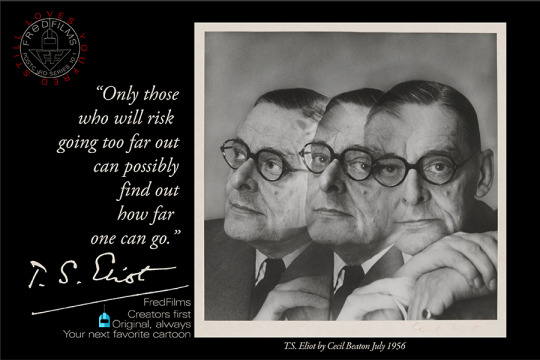
“Only those who will risk...”
FredFilms Postcard Series 10.1
Over the years, like many others, I’ve been influenced by all kinds of artists, and in their words I often found keys to my own efforts. After my screw up with the FredFilms Great Artist Series of postcards I still wanted to highlight non-animation/film artists across the spectrum.
Not much of a poetry fan, it was actually the Cecil Beaton photograph of the famous, sometimes controversial writer T.S. Elliot that stopped me in my tracks. But, it was his observation of artistic risk that really got me to kick off the FredFilms Quotation series.
.....
From the postcard back:
Congratulations! You are one of 125 people to receive this limited edition FredFilms postcard!
www.fredfilms.com
Original, Always Your next favorite cartoon Creators first
FredFilms Quotations “Only those who will risk going too far out can possibly find out how far one can go.”
T.S. Elliot, author and poet
Series 10.1 [mailed out March 17, 2024]
Photographed by Cecil Beaton Vintage bromide print on white card mount, July 1956 9 3/8 in. x 9 5/8 in. (239 mm x 243 mm) Given by Cecil Beaton, 1972 UK National Portrait Gallery Primary Collection NPG P869(12)
#FredFilms postcards#Series 10#T.S.Eliot#poetry#postcards#photography#Cecil Beaton#postcard#FredFilms Quotations
1 note
·
View note
Text
Settings in Literature as Edward Hopper Paintings
Edward Hopper is a famous American painter. He used to paint simple urban and rural settings that evoked a sense of simple quiet and aloneness. What would it look like if he painted some of these characters from our favorite authors’ setting descriptions?

View On WordPress
#AIImages#alexandredumas#Artificialintelligence#Bing#Edwardhopper#gregortheoverlander#harrypotter#homer#isakdinesen#J.K.Rowling#J.R.R.Tolkien#lesmiserables#Literature#outofafrica#paintings#robertjordan#settings#stephenking#Suzannecollins#T.s.eliot#thecountofmontecristo#theeyeoftheworld#thehobbit#theodyssey#thewasteland#thshining#victorhugo
0 notes
Text
Bazı insanlar sahip olamadıkları kalitenin, ait olmadıkları kişiliğin ve yaşayamadığı mutluluğun reklamını iyi yaparlar, uzak durun.
T.S.Eliot
39 notes
·
View notes
Text
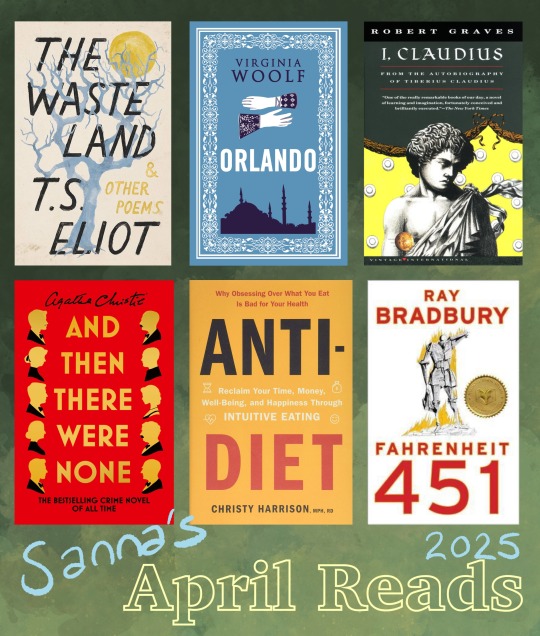
Sanna’s APRIL READS
Whee, another month has gone by and I’m back with my reading journal (I guess that’s what I’d call it?) Click through the read more for notes if you like!
This month was lighter on books read, but that’s mostly because I’m currently working through two subject heavy books simultaneously and didn’t manage to finish either in time for this update. Next month! Anyway, here are the six books I did finish…
My first book was poetry, which was uncharacteristic of me: The Waste Land & Other Poems by T.S.Eliot. It’s a classic, so I think it was good to read it. I’ll be honest, poetry is not something I go to. I feel like I lack the education to get all the literary (and cultural) references so I keep missing out on the full experience. But some of the poems here really resonated with me, despite my lack of full understanding. Some lines lifted themselves up for me to grab at them and marvel at their raw beauty. It was very enjoyable, and I’m not averse to reading more poetry in the future - in small doses at least.
Second, another very lyrical work in spirit. Virginia Woolf’s Orlando is something I always wanted to read. I saw the movie with Tilda Swinton in my late teens, and despite not remembering any details, it left me with strong fondness that never went away. We read this together with dearest @honeybeelullaby in our two person book club, and it was very lovely. The way the book handles gender and blurs the lines is stunning, especially considering the time when it was written, but also just in general. It’s very, very modern. It’s also very, very funny! I love her style, and I really look forward to re-reading her works that I read as a young and very angsty adult. I want to see if they speak to me differently now.
Then I was off to Ancient Rome! I was throughly entertained by the telenovela of I, Claudius (by Robert Graves). Full of plotting and gruesome fates, it really gripped me. I know next to nothing about Ancient Rome, so I was on the edge of my seat at all times. Some of the characters made me feel such intense loathing that it genuinely was like the best soap operas today. Just the pure evil of it all! To be honest, most of them were nasty in one way or another, which is true of soaps as well. I actually got the sequel of this from the library the last time I went, so I will try to read it by May. Looking forward to knowing what happens next!
The only revisit of this month was Agatha Christie’s And Then There Were None. Wow, it was such a trip to read this masterpiece again! I first read it when I was 12 or 13, as a school project - and that fully sucked me into the Christie universe. It’s still one of my absolute favorites from her… It’s so masterfully created, and I simply had to read the whole thing in one night because I was too scared of falling asleep before I had physically read the resolution. That’s how creepy the atmosphere was. I had two options for who the killer was, and I couldn’t remember which of them was correct, so I was genuinely enjoying the mystery to the very end.
The non fiction book of the month was Anti-Diet by Christy Harrison. And that was some heavy stuff! I was sort of ambivalent on this one, because the title mentions intuitive eating, and I personally find that to be quite difficult, even after all these years of working on my food relationship. But ultimately, the book was not as focused on the strategies of intuitive eating, as on why we have been so far removed from it, and how Life Thief (which is the author’s name for diet culture) steals away various areas of our lives. It was both nod-inducing and eye-opening. I feel endlessly fascinated with these themes, probably because of the personal connection. It feels good to have reassurance, sort of.
The last book I finished was Ray Bradbury’s Fahrenheit 451 - another classic I never got to before. It was chilling, and prophetic. I feel that books like this one, or 1984, or Brave New World, or Animal Farm, are more and more timely as years go by. This is not a ride I want to be on, personally. It feels difficult to even bring up things I thought of while reading - the thing I remember was the sense of doom. I was reading a sci-fi fantasy, but because the world is the way it is now, it just seemed more like a grim report on current events. That said, I truly loved it and I expect to be re-reading in the future.
******
Lots to think about this month. And the two books I’m going through now are constantly bringing up dust clouds of thought in my brain, so I expect that next month is also full of material. I’m living my best book life 💚
19 notes
·
View notes
Text
T.S. Eliot poetic quotes
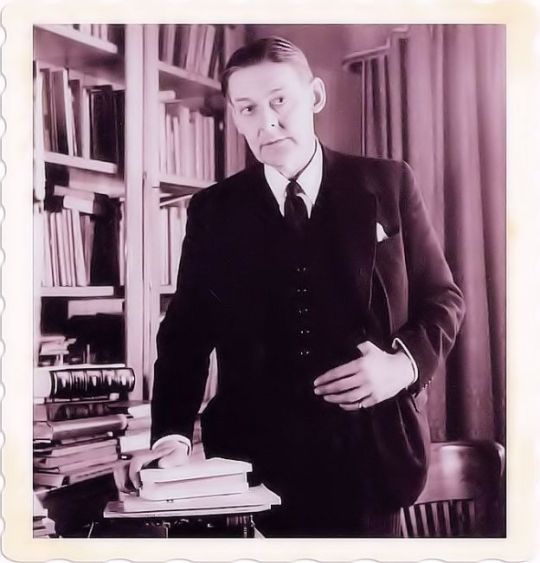
T.S. Eliot poetic quotes T.S. Eliot poetic quotes, aphorisms, sentences, definitions, criticisms and ideas that have a great poetic and literary meaning chosen from his various works. We shall not cease from exploration And the end of all our exploring Will be to arrive where we started And know the place for the first time. T. S. Eliot Poetry should help, not only to refine the language of the time, but to prevent it from changing too rapidly. T.S. Eliot First Priest: But again, is it war or peace? Messenger: Peace, but not the kiss of peace. T.S. Eliot Gradually we come to admit that Shakespeare understands a greater extent and variety of human life than Dante; but that Dante understands deeper degrees of degradation and higher degrees of exaltation. T.S. Eliot April is the cruelest month, breeding lilacs out of the dead land, mixing memory and desire, stirring dull roots with spring rain. T.S. Eliot No verse is free for the man who wants to do a good job.... Poetry.. remains one person talking to another.... no poet can write a poem of amplitude unless he is the master of the prosaic. T.S. Eliot When a Cat adopts you there is nothing to be done about it except to put up with it until the wind changes. T.S. Eliot The yellow fog that rubs its back upon the window-panes. T.S. Eliot We see the light but see not whence it comes. O Light Invisible, we glorify Thee! T.S. Eliot In the uncertain hour before the morning Near the ending of interminable night At the recurrent end of the unending After the dark dove with the flickering tongue Had passed below the horizon of his homing. T.S. Eliot And so each venture Is a new beginning, a raid on the inarticulate With shabby equipment always deteriorating In the general mess of imprecision of feeling, Undisciplined squads of emotion. T.S. Eliot The last temptation is the greatest treason: To do the right deed for the wrong reason. T.S. Eliot The man who returns will have to meet The boy who left. T.S. Eliot These modern productions are all very well, But there's nothing to equal, from what I hear tell, That moment of mystery When I made history As Firefrorefiddle, the Fiend of the Fell. T.S. Eliot There are several symptoms Which must occur together, and to a marked degree, To qualify a patient for my sanatorium: And one of them is an honest mind. That is one of the causes of their suffering. T.S. Eliot In spite of all the dishonour, the broken standards, the broken lives, The broken faith in one place or another, There was something left that was more than the tales Of old men on winter evenings. T.S. Eliot Ash on an old man's sleeve Is all the ash the burnt roses leave. Dust in the air suspended Marks the place where a story ended. Dust inbreathed was a house - The wall, the wainscot and the mouse The death of hope and despair, This is the death of air. T.S. Eliot Unreal city, Under the brown fog of a winter dawn, A crowd flowed over London Bridge, so many, I had not thought death had undone so many. T.S. Eliot Keeping time, Keeping the rhythm in their dancing As in their living in the living seasons The time of the seasons and the constellations The time of milking and the time of harvest The time of the coupling of man and woman And that of beasts. Feet rising and falling. Eating and drinking. Dung and death. T.S. Eliot Let these words answer For what is done, not to be done again May the judgement not be too heavy upon us T.S. Eliot In life there is not time to grieve long But this, this is out of life, this is out of time, An instant eternity of evil and wrong. T.S. Eliot The hippopotamus's day Is passed in sleep; at night he hunts; God works in a mysterious way - The Church can sleep and feed at once. T.S. Eliot Wavering between the profit and the loss In this brief transit where the dreams cross The dreamcrossed twilight between birth and dying. T.S. Eliot And what the dead had no speech for, when living, They can tell you, being dead: the communication Of the dead is tongued with fire beyond the language of the living. T.S. Eliot

T.S. Eliot poetic aphorisms Madame Sosostris, famous clairvoyante, Had a bad cold, nevertheless Is known to be the wisest woman in Europe, With a wicked pack of cards. T.S. Eliot He is every bit as sane as you or I, He sees the world as clearly as you or I see it, It is only that he has seen a great deal more than that. T.S. Eliot Why should men love the Church? Why should they love her laws? She tells them of Life and Death, and of all that they would forget. T.S. Eliot You gave me hyacinths first a year ago; They called me the hyacinth girl. - Yet when we came back, late, from the Hyacinth garden, Your arms full, and your hair wet, I could not Speak, and my eyes failed, I was neither Living nor dead, and I knew nothing, Looking into the heart of light, the silence. Od' und leer das Meer. T.S. Eliot Sudden in a shaft of sunlight Even while the dust moves There rises the hidden laughter Of children in the foliage Quick now, here, now, always - Ridiculous the waste sad time Stretching before and after. T.S. Eliot We can say of Shakespeare, that never has a man turned so little knowledge to such great account. T.S. Eliot We are the hollow men We are the stuffed men Leaning together Headpiece filled with straw. Alas! T.S. Eliot I do not believe that any writer has ever exposed this bovarysme, the human will to see things as they are not, more clearly than Shakespeare. T.S. Eliot Dante and Shakespeare divide the world between them. There is no third. T.S. Eliot And Shakespeare himself takes liberties which only his genius justifies; liberties which Dante, with an equal genius, does not take. To pass on to posterity one’s own language, more highly developed, more refined, and more precise than it was before one wrote it, that is the highest possible achievement of the poet as poet. T.S. Eliot To be truly great poets it is not enough to have language and vision; it is also necessary to possess a great philosophical and/or theological system, which Shakespeare lacked and Dante did not. T.S. Eliot Every phrase and every sentence is an end and a beginning, every poem an epitaph. T.S. Eliot I gotta use words when I talk to you But if you understand or if you don't That's nothing to me and nothing to you. T.S. Eliot The business of the poet is not to find new emotions, but to use the ordinary ones and, in working them up into poetry, to express feelings which are not in actual emotions at all. T.S. Eliot In the room the women come and go Talking of Michelangelo. T.S. Eliot Yet with these April sunsets, that somehow recall My buried life, and Paris in the spring, I feel immeasurably at peace, and find the world To be wonderful and youthful after all. T.S. Eliot I should have been a pair of ragged claws Scuttling across the floors of silent seas. T.S. Eliot Immature poets imitate; mature poets steal; bad poets deface what they take, and good poets make it into something better, or at least something different. T.S. Eliot Home is where one starts from. As we grow older The world becomes stranger, the pattern more complicated Of dead and living. Not the intense moment Isolated, with no before and after, But a lifetime burning in every moment And not the lifetime of one man only But of old stones that cannot be deciphered. T.S. Eliot A good poet will usually borrow from authors remote in time, or alien in language, or diverse in interest. T.S. Eliot Love is most nearly itself When here and now cease to matter. Old men ought to be explorers Here and there does not matter We must be still and still moving Into another intensity For a further union, a deeper communion Through the dark cold and the empty desolation, The wave cry, the wind cry, the vast waters Of the petrel and the porpoise. In my end is my beginning. T.S. Eliot Think not forever of yourselves, O Chiefs, nor of your own generation. Think of continuing generations of our families, think of our grandchildren and of those yet unborn, whose faces are coming from beneath the ground. T.S. Eliot There is no end of it, the voiceless wailing, No end to the withering of withered flowers. T.S. Eliot We can say of Shakespeare, that never has a man turned so little knowledge to such great account. T.S. Eliot It seems just possible that a poem might happen To a very young man: but a poem is not poetry - That is a life. T.S. Eliot

T.S. Eliot poetry quotes Our lives are mostly a constant evasion of ourselves, and of our visible, sensible world. T.S. Eliot To rest in your own suffering Is evasion of suffering. We must learn to suffer more. T.S. Eliot All things become less real, man passes From unreality to unreality. T.S. Eliot The death of hope and despair, This is the death of air. T.S. Eliot My life is light, waiting for the death wind, Like a feather on the back of my hand. T.S. Eliot Garlic and sapphires in the mud Clot the bedded axle-tree. The trilling wire in the blood Sings below inveterate scars And reconciles forgotten wars. T.S. Eliot In my beginning is my end. In succession Houses rise and fall, crumble, are extended, Are removed, destroyed, restored, or in their place Is an open field, or a factory, or a by-pass. Old stone to new building, old timber to new fires, Old fires to ashes, and ashes to the earth Which is already flesh, fur and faeces, Bone of man and beast, cornstalk and leaf. T.S. Eliot There are flood and drought over the eyes and in the mouth, dead water and dead sand contending for the upper hand. The parched eviscerate soil gapes at the vanity of toil, laughs without mirth. This is the death of the earth. T.S. Eliot When a great poet has lived, certain things have been done once for all, and cannot be achieved again. T.S. Eliot Any man has to, needs to, wants to Once in a lifetime, do a girl in. T.S. Eliot Where does one go from a world of insanity? Somewhere on the other side of despair. T.S. Eliot It is not the "greatness," the intensity, of the emotions, the components, but the intensity of the artistic process, the pressure, so to speak, under which the fusion takes place, that counts. T.S. Eliot When the day's hustle and bustle is done, Then the Gumbie Cat's work is but hardly begun. T.S. Eliot What have we to do but stand with empty hands and palms turned upwards in an age which advances progressively backwards? T.S. Eliot I am glad you have a Cat, but I do not believe it is So remarkable a cat as My Cat. My Cat is a Lilliecat Hubvously. What a lilliecat it is. There never was such a Lilliecat. Its Name is JELLYORUM and its one Idea is to be Usefull!! T.S. Eliot Oh my soul, be prepared for the coming of the Stranger. Be prepared for him who knows how to ask questions. T.S. Eliot As she laughed I was aware of becoming involved in her laughter and being part of it, until her teeth were only accidental stars with a talent for squad-drill. T.S. Eliot The Rum Turn Tugger is a terrible bore: When you let him in, then he wants to be out; He's always on the wrong side of every door, And as soon as he's at home, then he'd like to get about. T.S. Eliot In the vacant places We will build with new bricks T.S. Eliot If we are moved by a poem, it has meant something, perhaps something important, to us; if we are not moved, then it is, as poetry, meaningless. T.S. Eliot The majority of poems one outgrows and outlives, as one outgrows and outlives the majority of human passions. T.S. Eliot The endless cycle of idea and action, / Endless invention, endless experiment, / Brings knowledge of motion, but not of stillness; / Knowledge of speech, but not of silence; / Knowledge of words, and ignorance of The Word. T.S. Eliot A woman drew her long black hair out tight, And fiddled whisper music on those strings, And bats with baby faces in the violet light Whistled, and beat their wings, And crawled head downward down a blackened wall. T.S. Eliot Poets in our civilization, as it exists at present, must be difficult... The poet must become more and more comprehensive, more allusive, more indirect, in order to force, to dislocate if necessary, language into its meaning. T.S. Eliot When a poet's mind is perfectly equipped for its work, it is constantly amalgamating disparate experience - in the mind of the poet these experiences are always forming new wholes. T.S. Eliot

T.S. Eliot in the library Footfalls echo in the memory Down the passage which we did not take Towards the door we never opened Into the rose-garden. T. S. Eliot Here I am, an old man in a dry month, Being read to by a boy, waiting for rain. T.S. Eliot He knew the anguish of the marrow The ague of the skeleton; No contact possible to flesh Allayed the fever of the bone. T.S. Eliot A condition of complete simplicity (Costing not less than everything) And all shall be well and All manner of thing shall be well When the tongues of flame are infolded Into the crowned knot of fire And the fire and the rose are one. T. S. Eliot For last year's words belong to last year's language And next year's words await another voice. T.S. Eliot I am aware of the damp souls of housemaids Sprouting despondently at area gates. T.S. Eliot Do I dare Disturb the universe? In a minute there is time For decisions and revisions which a minute will reverse. For I have known them all already, known them all: - Have known the evenings, mornings, afternoons, I have measured out my life with coffee spoons; I know the voices dying with a dying fall Beneath the music from a farther room. T. S. Eliot Clear the air! clean the sky! wash the wind! take the stone from stone, take the skin from the arm, take the muscle from bone, and wash them. T.S. Eliot Prophesy to the wind, to the wind only for only The wind will listen. T.S. Eliot It is a test (a positive test, I do not assert that it is always valid negatively), that genuine poetry can communicate before it is understood. T.S. Eliot Lady, three white leopards sat under a juniper-tree In the cool of the day. T.S. Eliot I take as metaphysical poetry that in which what is ordinarily apprehensible only by thought is brought within the grasp of feeling, or that in which what is ordinarily only felt is transformed into thought without ceasing to be feeling. T.S. Eliot I am tired with my own life and the lives of those after me, I am dying in my own death and the deaths of those after me. T.S. Eliot Much to cast down, much to build, much to restore. T.S. Eliot Sometimes these cogitations still amaze The troubled midnight and the noon's repose. T.S. Eliot The readers of the Boston Evening Transcript Sway in the wind like a field of ripe corn. T.S. Eliot O Light Invisible, we praise Thee! Too bright for mortal vision. T.S. Eliot Speech impelled us To purify the dialect of the tribe And urge the mind to aftersight and foresight. T.S. Eliot Of lovers whose bodies smell of each other Who think the same thoughts without need of speech T.S. Eliot The great poet, in writing himself, writes his time. T.S. Eliot The eastern light our spires touch at morning, The light that slants upon our western doors at evening, The twilight over stagnant pools at batflight, Moon light and star light, owl and moth light, Glow-worm glowlight on a grassblade. O Light Invisible, we worship Thee! T.S. Eliot God is leaving us, God is leaving us, more pang, more pain, than birth or death. T.S. Eliot I'll convert you! Into a stew. A nice little, white little, missionary stew! T.S. Eliot Two live as one One live as two Two live as three Under the bam Under the boo Under the bamboo tree. T.S. Eliot

T.S. Eliot Child house To country people Cows are mild, And flee from any stick they throw; But I'm a timid town bred child, And all the cattle seem to know. T.S. Eliot In our rhythm of earthly life we tire of light. We are glad when the day ends, when the play ends; and ecstasy is too much pain. T.S. Eliot By the same author you can also read: T.S. Eliot quotes and aphorisms T.S. Eliot thoughts and reflections Aforismi e citazioni di T.S. Eliot Aprile il mese più crudele The Waste Land by T.S. Eliot Complete Poems by T.S. Eliot Selected essays by T.S. Eliot Collected poems 1909-1935 Quotes by authors Quotes by arguments Essays with quotes Thoughts Read the full article
#aphorisms#April#Dante#Eliot#God#hollow#land#love#men#poem#poems#poet#poetic#Poetry#quotes#Shakespeasre#T.S.Eliot#wast#words#writing
0 notes
Text
o mais terrível dos meses
Olá minha cara, Escrevo-te nesta manhã de segunda-feira, com ventos e dourados raios solares a riscar o chão do quintal, por onde transito com uma xícara de chá em mãos. Colhi folhas para fazer um chá. Maracujá, uvaia, amora e jabuticaba. O cheiro? Uma delícia. O sabor? Deixo para você imagina-lo… Vejo nuvens se acumulando no céu. Não sei se é correto dizer que há promessas de chuvas no céu da…
0 notes